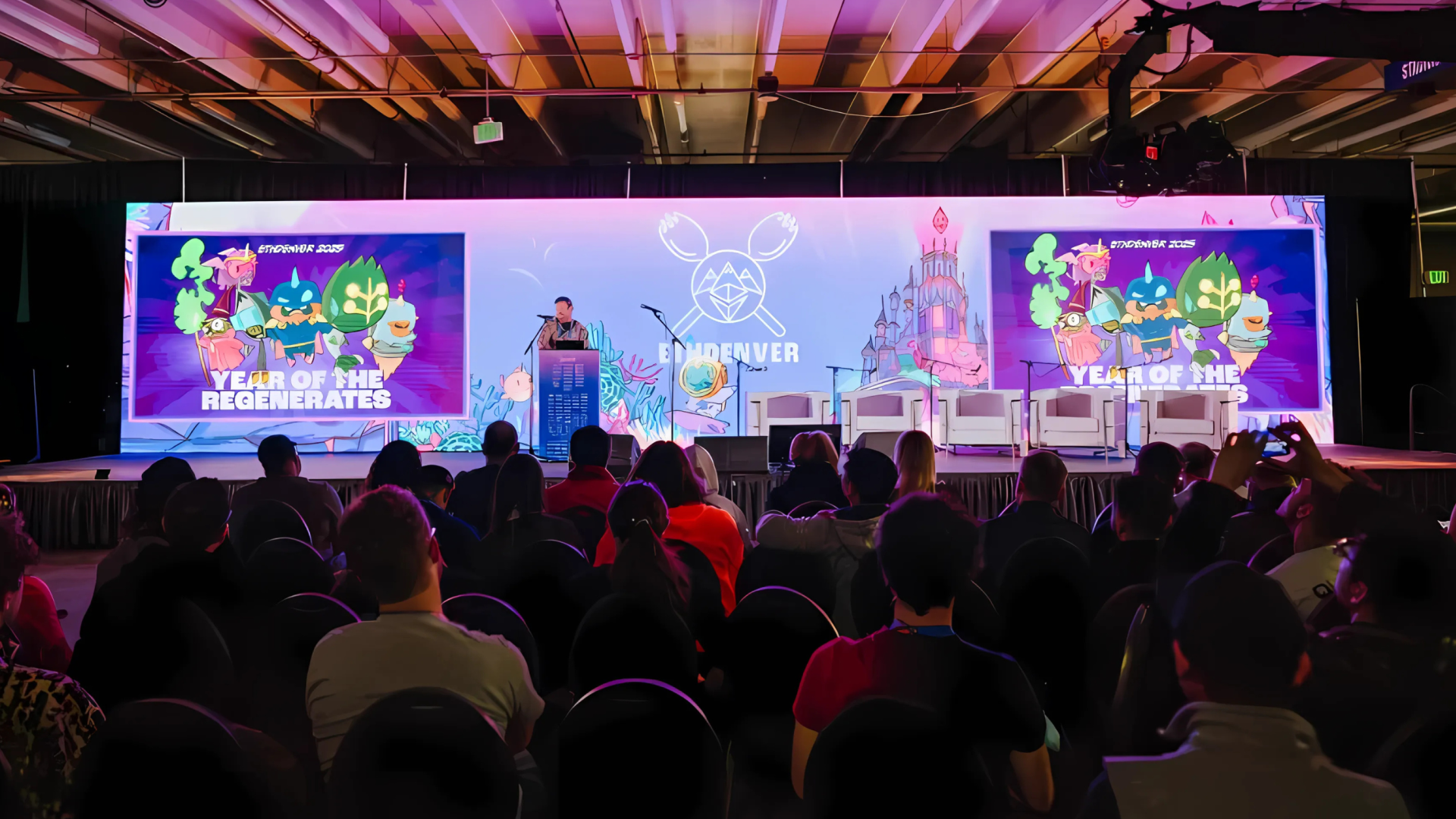A Year in Parachains, Part 4: Sustainability, IoT, NFTs, Gaming, & Metaverse
A brief overview of Polkadot's parachain landscape following its first full year since launch. Part 4: Sustainability, IoT, NFTs, Gaming, & Metaverse
 By Polkadot•March 8, 2023
By Polkadot•March 8, 2023
It’s been a little over a year since parachains first launched on Polkadot, and already the network boasts the largest ecosystem of use-case specific blockchains in the world. Since the first slot auctions took place in November 2021 and the first parachains began onboarding to the network the following month, 42 parachains have joined Polkadot, with an additional 42 parachains on Polkadot’s canary network, Kusama, for a total of 84 across the Polkadot ecosystem.
Over the past year, Polkadot’s first parachains have been busy rolling out and upgrading their technologies, demonstrating the power and flexibility that Polkadot provides with the parachain model, which gives teams a competitive advantage by enabling them to fully customize their own layer-1 blockchain in the optimal way for their use case, with industry-leading upgradeability and interoperability capabilities.
Showing the potential of Web3 to fuel innovation across a wide range of use cases, Polkadot’s ecosystem of parachains is now buzzing with activity across DeFi, smart contracts, social media, decentralized identity, IoT, gaming, the metaverse, sustainability, and more.
This series of posts provides a brief overview of Polkadot’s parachain landscape in its first year since launch, starting in Part 1 with a look at Polkadot’s DeFi (Decentralized Finance) parachains, and continuing in Part 2 with a look at Polkadot’s system parachains, smart contract, and social media parachains, and Part 3 diving into to data, identity, privacy, storage, and infrastructure parachains. In Part 4, we look at Polkadot’s sustainability, IoT, NFT, gaming, and metaverse parachains, featured in the order that they won a parachain slot auction.
Sustainability
Sustainability initiatives like carbon tokenization, carbon credits marketplaces, and ethical commodities are a ripe field for Web3 innovation. Trust, transparency, and efficiency are crucial issues affecting sustainability initiatives globally, which Polkadot’s blockchain technology can help address, with the added benefits of Polkadot’s cross-chain interoperability, low energy usage, and low, customizable fees.
WATR
Auction 27: Onboarded August 28th, 2022
The conventional commodities market is facing crucial sustainability issues, with record prices, scarcity, and unethical approaches like child labor and others that negatively impact the planet, resource-owning communities, and consumers.
Watr is an open ethics-driven platform for programmable commodities, connecting commodity flows with a robust ecosystem of participants, also encompassing commodities financing and trade. Intended for both retail and enterprise markets, Watr is reimagining finance and trade through the lens of inclusivity, transparency, and sustainability.
Watr combines several functionalities, including a smart contract platform, decentralized identity, supply chain and provenance tracking, and zero-knowledge proofs, to create a full-featured open platform optimized for ethical commodities. Existing initiatives being built on Watr include a partnership with Flowcarbon to launch its carbon tokenization technology for traceable and transparent carbon markets.
BITGREEN
Auction 29: Onboarded November 21st, 2022
Bitgreen is a platform built for sustainability and innovation in green technology, designed to meet the needs of NGOs, corporate ESG groups, and Web3 sustainability projects.
Bitgreen is building a blockchain marketplace for high-quality carbon credits, as well as an impact investment platform, enabling users to support critical sustainability initiatives, granting greater exposure for green efforts and establishing a stronger sense of trust between projects and their supporters.
Through a partnership with the Sequester project, Bitgreen is also working to take the already energy-efficient Polkadot network to carbon neutral status and beyond. Bitgreen also recently announced a partnership with international climate action platform Global Energy Alliance for People and Planet (GEAPP) to finance the Betmai Hydroelectric Facility in West Africa.
IoT
IoT (Internet of Things) technology is connecting the world around us and providing a means of monitoring and measuring data that can contribute to industrial efficiency, sustainability initiatives, and much more, with 30 billion devices expected to be connected by 2025. But current generation centralized infrastructure for IoT systems has several shortcomings that can be addressed with Polkadot's blockchain technology, including security, transparency, and economic efficiency issues, as well as the need for trust between different stakeholders.
NODLE
Auction 11: Onboarded March 11th, 2022
Nodle is a decentralized network for IoT that incentivizes users for turning their smartphones into nodes that secure the network and provide connectivity for devices around them in a decentralized wireless network. This allows smart devices without an internet connection to communicate without the need for additional infrastructure, reducing costs and barriers to entry for connectivity.
Nodle’s ‘smart missions’ allow developers to create use cases on the Nodle parachain, leveraging the network’s connected smartphones for various functions, services and applications — essentially Web3 apps that can connect to devices in the real world. Nodle is one of the most highly-adopted IoT projects in Web3, having already connected millions of devices and processed millions of transactions across 100+ countries.
NFT/Gaming/Metaverse
Gaming, NFTs, and the metaverse have proven to be some of the most popular blockchain use cases in recent years. In particular, the ability for users to have provable ownership over digital art and in-game assets has been a game-changer. But projects built on legacy networks have seen numerous challenges, including high gas fees, limited management and ownership options, smart contract latency, and a lack of cross-platform interoperability.
Polkadot’s parachains are building the next generation of NFT and blockchain gaming technology, with innovative new features not seen in other ecosystems and with the added benefits of Polkadot’s industry-leading interoperability, scalability, and optimization.
EFINITY
Auction 6: Onboarded March 11th, 2022
Efinity is a next-generation blockchain for NFTs designed to serve as the infrastructure of the decentralized metaverse. Purpose-built to remove the barriers to entry to NFTs and decentralized gaming, Efinity simplifies the user experience and economics of digital asset management.
The overwhelming market demand for NFTs has left businesses and developers looking for a platform that can deliver a UX-rich, mainstream, developer-friendly NFT experience. Prior to joining Polkadot, Efinity struggled with high minting fees, inflexible smart contracts, and a lack of interoperability on Ethereum. Thanks to the scalability offered by Polkadot, Efinity can process up to 2+ million NFT mints per second.
There are 100+ brand partners currently building on the platform, and the new Enjin Wallet 2.0 furthers Efinity’s project reach by enabling multiple addresses, better portfolio views, in-wallet dapps, multi-chain support, and more. Recently MyMetaverse minted playable NFTs on Efinity, representing virtual assets playable in multiple games, including Grand Theft Auto 5 and Minecraft. 2022 also saw Efinity partnering with gaming giant Square Enix on Polkadot-powered NFTs for Final Fantasy, one of the top games of all time.
UNIQUE NETWORK
Auction 14: Onboarded June 4th, 2022
Unique Network is designed to be the framework for the next generation of NFTs, providing advanced functionality to take NFTs to the next level of mass adoption. Unique Network is Ethereum-compatible and also lowers the NFT barrier of entry for users by creating a freemium model where developers can bear the cost of gas fees, give discounts, and attract more users.
One advanced feature Unique Network has launched is ‘nested NFTs ‘— enabling customized NFT relationships and layered access management. This opens the door for developers to create NFT experiences that are tailored to individual users’ preferences, and continue to make NFTs more accessible for average users.
Unique’s milestones over the past year include a partnership with Livetree, Lemonade Social, and Dundas World, and product launches for nested NFTs, Re-fungible tokens, and more.
AJUNA
Auction 31: Onboarded November 21st, 2022
Ajuna network is a gaming and NFT-focused parachain enabling Unreal and Unity engine developers to create an incentive layer into their games where tokenized virtual goods can be exchanged. Ajuna enables players to own and fully control the virtual goods they earn through gaming, a significant upgrade from modern games where players spend hours earning in-game assets without real ownership or interoperability benefits.
Thanks to a partnership with Integritee, Ajuna will be capable of running entire game engines within Trusted Execution Environments (TEEs) for fast, secure, scalable gaming ecosystems for Web3. Ajuna’s SDK simplifies blockchain development for gaming builders, taking them beyond the limitations of EVM development, such as latency issues with smart contracts.
In 2022, Ajuna made headlines with a demo of the world’s first fully on-chain mobile game, and recently launched their Awesome Ajuna Avatars collective game on their Kusama parachain, Bajun.
Kusama Parachains
Beyond the parachains currently on Polkadot, an additional 43 have joined Kusama, Polkadot’s canary network. Kusama is where brilliant builders come to innovate, providing a live, value-bearing environment for teams to battle-test their technologies and mitigate risk, build a community, and develop partnerships before a production deployment to Polkadot, or to build and iterate more experimental use cases.
Current use cases on Kusama generally mirror those on Polkadot, with an added focus on DAOs (Decentralized Autonomous Organizations) and Artificial Intelligence:
Many teams maintain a parachain on both Polkadot and Kusama, using Kusama to battle-test new technologies before rolling out upgrades to their Polkadot mainnet.
What’s Next?
Despite the difficult year for blockchain in 2022, the Polkadot community and ecosystem delivered several key innovations over the past year, and now boasts the largest ecosystem of layer-1 chains, with over 300 decentralized applications already built on top of them, as well as the largest community of full-time developers outside of Ethereum.
With a ton of new projects in the pipeline, new parachains will continue rolling out over the next year and beyond, and existing parachains will continue building on their recent successes, rolling out new technologies and onboarding a new wave of Web3 end-users.
Several key technologies are also in development for Polkadot, which will push the capabilities of parachains and dapps even further, including trustless interoperability with external networks with the rollout of XCM v3 and the Bridge Hub parachain. With everything that’s happening in the Polkadot ecosystem, 2023 is shaping up to be the biggest year yet for Web3 innovation.
Interested in developing for or building on Polkadot? Get in touch for hands-on support.











